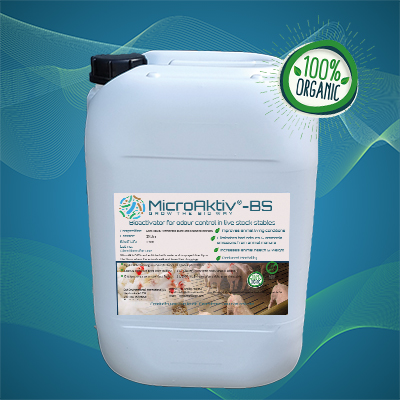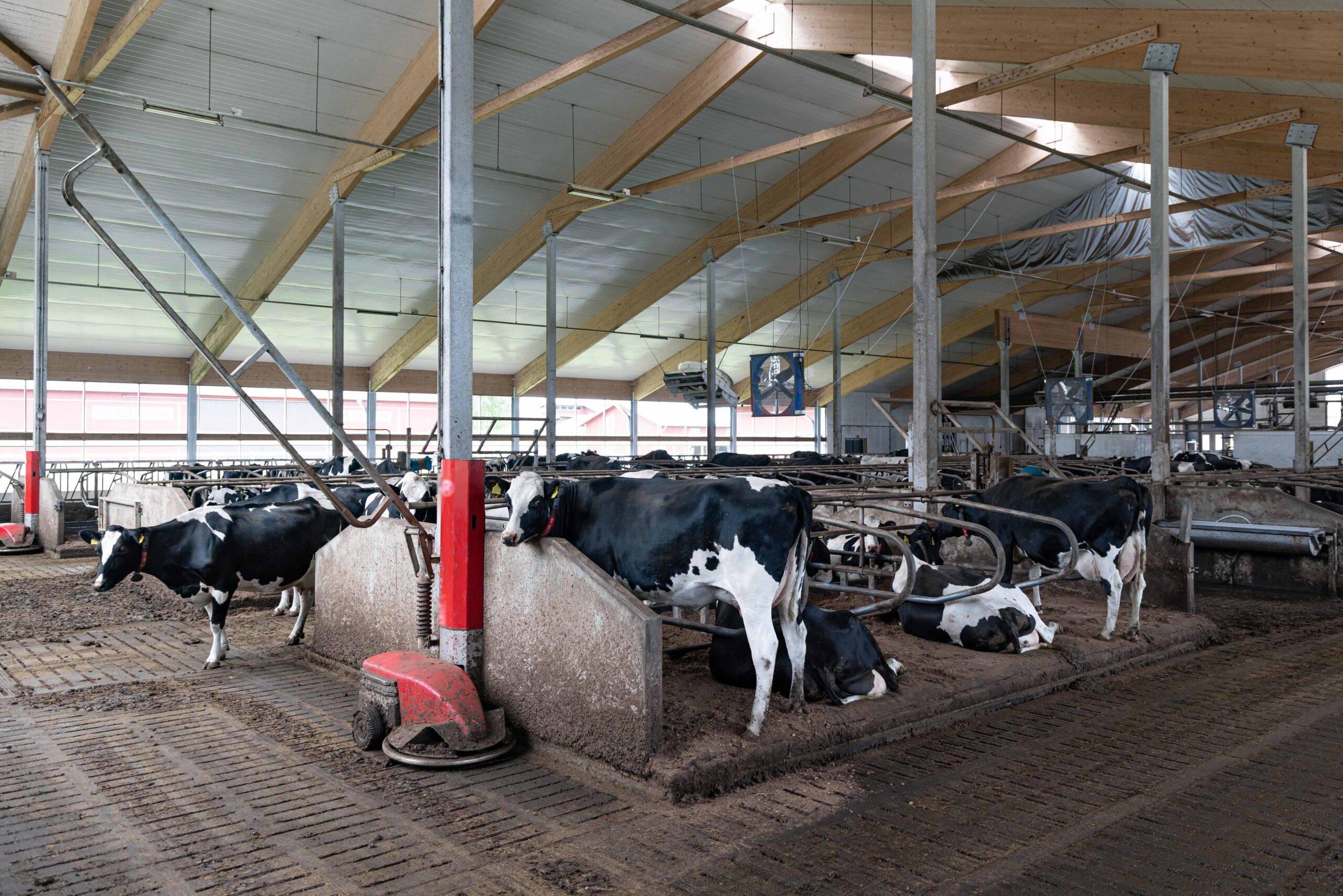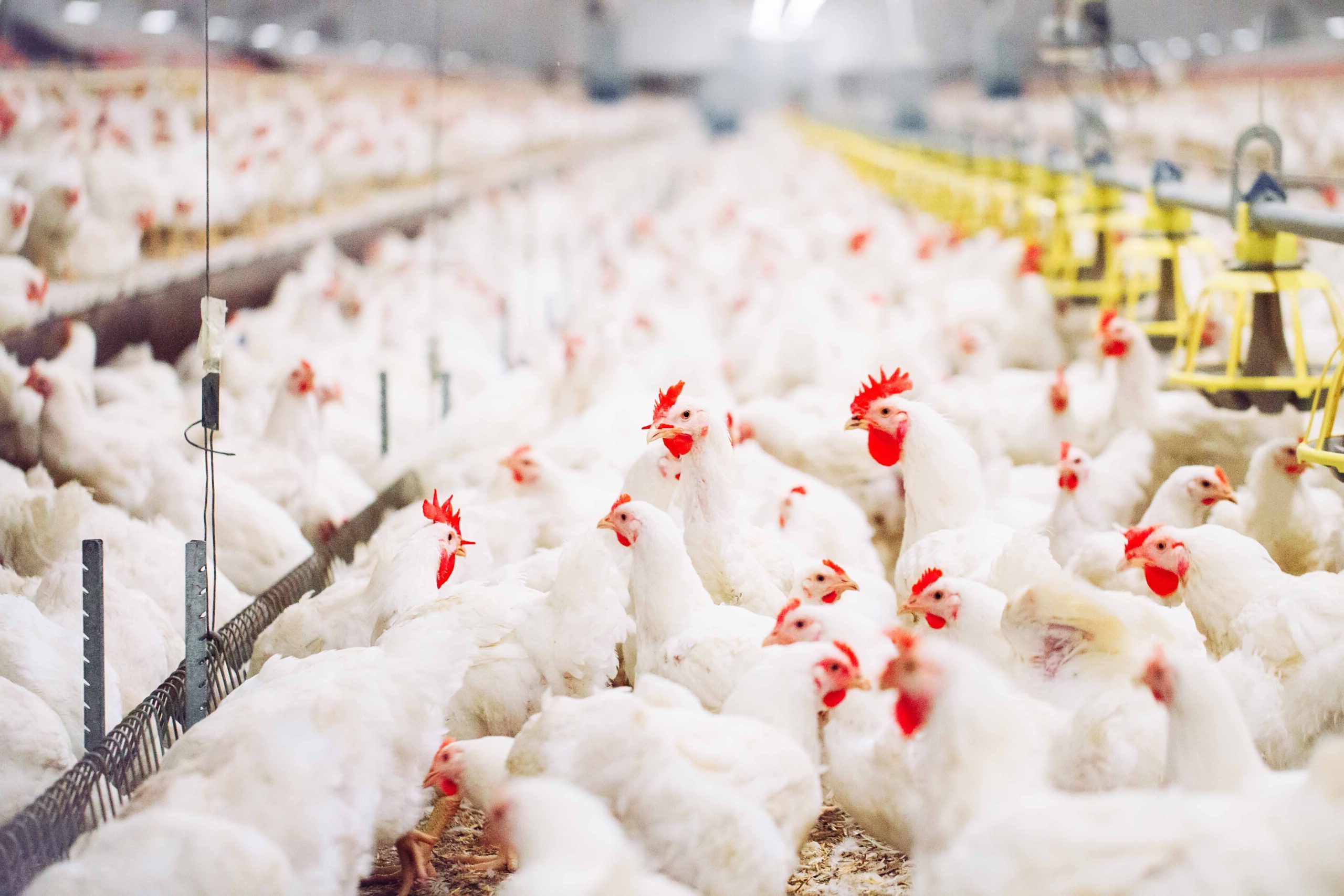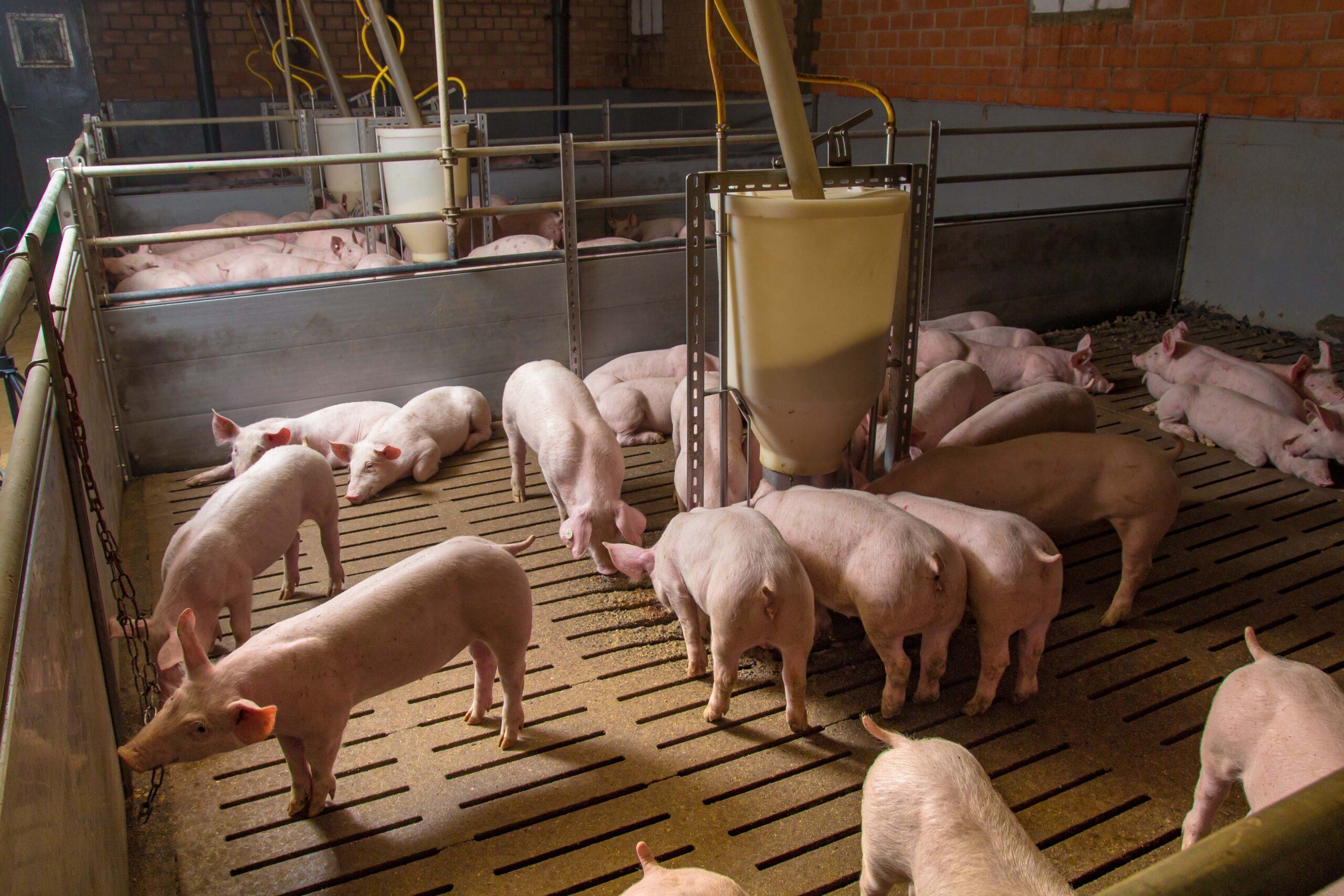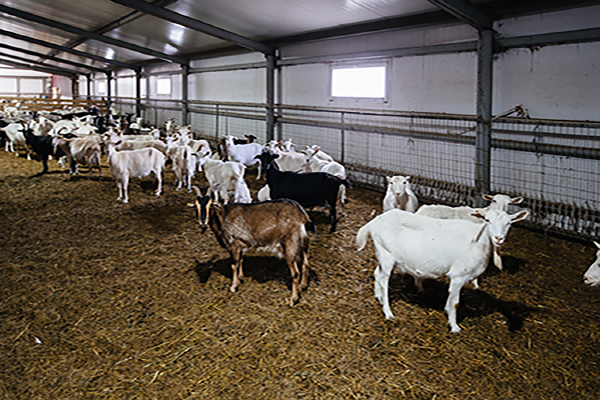How is ammonia formed?
In (intensive) livestock farming, so-called concentrates are widely used. Part of the protein in concentrates is not absorbed by the animal, but ends up in the environment via the urine in the form of urea. Urea is converted by the bacteria present in the solid faeces into ammonium, which evaporates as ammonia gas. This phenomenon is largely responsible for nitrogen emissions from agriculture.
Scientific research has shown that animal manure contains many different types of bacteria. When we think of bacteria, we quickly think of pathogens, but in reality, these pathogenic strains only make up a small part of the total bacterial population. Most bacteria in the manure live on the organic material in the manure, they use the organic carbon in the manure as a carbon source for the production of new bacterial cells. In addition to carbon, they also need nitrogen and phosphate, and to obtain nitrogen they produce an enzyme called urease to break down the urea in the urine to release ammonium (NH4+) that they can use as a nitrogen source.
As soon as the urine comes into contact with the solid manure, ammonium is formed, which evaporates under certain conditions as ammonia gas (NH3). In manure from pigs and cattle, the ammonia mainly originates from urea, which is present in the urine, while in poultry, the ammonia originates from uric acid that is broken down.
The effect of ammonia on animal welfare
Scientific research has shown that pigs and poultry that are exposed to ammonia for a long time suffer more from stress and diseases. This causes slower growing animals and an increased mortality rate.
In animals, ammonia has an effect on the:
- Respiratory tract
- Digestion
- Skin
- Eyes
MicroAktiv®-BS
Vegetable
How does MicroAktiv®-BS work?
MicroAktiv®-BS is a liquid product based on plant and seaweed extracts that can be used in cattle, pig and poultry houses. The ingredients in MicroAktiv®-BS stimulate the naturally occurring bacteria in the manure to accelerate the conversion of organic matter into new bacteria. As a result, more ammonium is used by the bacteria to grow and it is stored in the cell material of the bacteria. In addition, nitrification and denitrification are also accelerated, resulting in less overall ammonia evaporation.
The product is sprayed on the living floor of the animals in order to come into contact with the manure. Ammonia reductions of more than 70% are achievable in both pig and poultry houses. Although there is some loss of nitrogen (N2) that escapes to the atmosphere as nitrogen gas, which is formed during denitrification, most of the nitrogen will be fixed in the biomass formed and thus increase the fertilization value of the manure.
The effect in the stable is that there is less odor/ammonia emission from the floor and from the manure cellar. This makes the living environment in the stables more pleasant for the animals and the people who work there.
The use of MicroAktiv®-BS results in a healthier living environment, resulting in less stress, fewer animals becoming ill, fewer deaths and the animals have a better feed conversion. This ultimately results in a higher yield for the farmer.
Composition & Dosage
MicroAktiv®-BS is composed entirely of natural raw materials and is harmless to humans, animals and the environment.
MicroAktiv®-BS can be diluted indefinitely with water and applied using a pressure sprayer, for example.
Shelf life: 1 year

